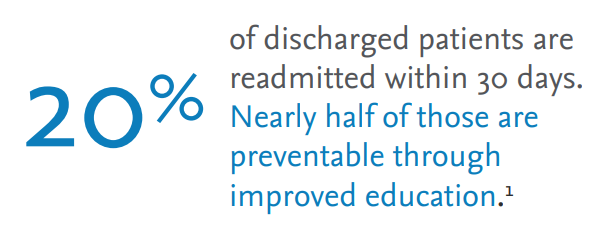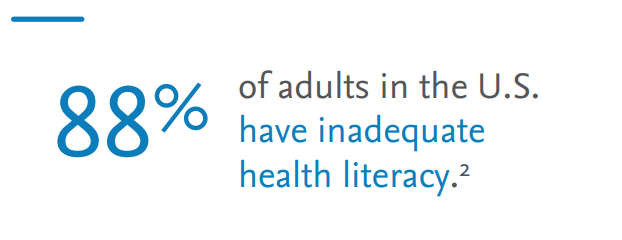
“A big part of providing equitable care is shifting the paradigm around health education and literacy, and empowering people to make more informed decisions about their health. At Elsevier, we strive to lay the groundwork for equitable care across populations—it’s at the heart of everything we do.” - Tiffany McCauley, MSN, RN
Since most health care happens outside of the clinic or hospital, clinicians need to go beyond providing quality care. They need to help patients better understand and self-manage their care – reaching far beyond the four walls of the health system. Providing quality, consistent care requires:
Establishing a starting point to understand a patient’s full story.
Recognizing where they are in their learning process.
Identifying an effective communication strategy to ensure comprehension and retention of meaningful information.
Collaboration with the interprofessional team is critical to build off each other’s efforts in reinforcing what’s important for the patient, and to help them develop the knowledge and skills necessary to achieve optimal health. A thoughtful patient education and engagement strategy that focuses on the end-user – the patient – can make a powerful impact on health equity. By providing content and innovative technology that is tailored to the diverse needs of the community through the channels they expect can ultimately result in an improved quality of life.



Health literacy influences a patient’s ability to follow ongoing care instructions – impacting everything from medication compliance to readmission rates and overall quality of life – which is why it’s one of the cornerstones of the Healthy People 2030 initiative.
When patients and their caregivers are empowered to self-manage their care and take an active role in their health, they’re less likely to be readmitted to the hospital. But, individual barriers, such as low health literacy and social determinants of health, are compounded by system-level barriers that widen the knowledge gap between healthcare teams and patients. Unfortunately, these barriers are impacting some populations more than others, exacerbating health inequities.
Systemic barriers such as insufficient access to patient engagement tools and inconsistent health information leave patients and providers with a one-size-fits-all approach. Providing the same education strategy to every patient simply doesn’t work – it’s inequitable.
Healthcare organizations can start addressing these barriers to health equity and education through evidence-based content and innovative technology. But technology should only be part of your strategy. You need a platform that’s flexible enough to meet the unique needs of the diverse population you’re serving to help improve equitable care and health care efficiencies. This means an approach that’s all about the patient; meeting them where they are to provide education in the format that best suits their needs – printed or via digital channels – at relevant points within their journey.


Advancing health outcomes through patient engagement and care planning technology
Cookies are used by this site. To decline or learn more, visit our cookie notice.
Copyright © 2025 Elsevier, its licensors, and contributors. All rights are reserved, including those for text and data mining, AI training, and similar technologies.